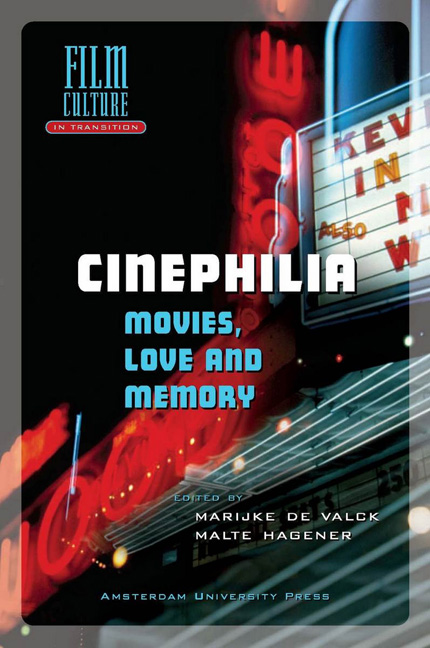Book contents
Conceptual Cinephilia: On Jon Routson’s Bootlegs
Published online by Cambridge University Press: 25 January 2021
Summary
From the releases of George Lucas's blockbuster disappointment STAR WARS, EPISODE I: THE PHANTOM MENACE (USA: 1999) to acting twin Mary-Kate and Ashley Olsen's feature film flop NEW YORK MINUTE (USA: Danny Gordon, 2004), Baltimore-based conceptual artist Jon Routson (1969) recorded cinema screenings with his digital video camera. Routson would merely turn on his camera when the feature began, often cutting off the opening credits and jostling the image as he settled into his seat. He would rest the camera low on his chest or stomach to be inconspicuous and record without looking through the viewfinder in order to preserve the camera's batteries and to avoid attracting the theater ushers’ attention. The footage often wandered out of focus, cropped the films, and reduced the big screens’ grandeur to murky colors, low-resolution details, and harsh flickers. Occasionally elliptical jump-cuts interrupted the middle of recordings and end credits went missing, though all “editing” was done in-camera during the screening. Routson then burned the footage to DVD-R without any post-production alteration or creating menus or chapter settings. He has stated that he often didn't even watch his recordings before sending them to his gallery for instant exhibition. As an automated creative practice, these documents entailed no craftsmanship and only minimal technical proficiency, yet their imperfections allow us to reconsider the way we see films. In essence, these are reproductions of film exhibitions that stress the space of the cinema, the noise of the audience, and the grain and flicker of the films – showing us what spectators are supposedly perceptually ignoring.
Critical analysis of Routson's work has focused primarily on its novel challenge to traditional notions of authorship and its tenuous legality. Despite prominent press attention, however, Routson has never faced litigation or received cease-and-desist orders. This, even though piracy paranoia has made the work timely and relevant – former Motion Picture Association of America President Jack Valenti's infamous campaign against piracy and the failed Academy Award video screener ban hit a fever pitch in fall 2003, exactly between Routson's two spring shows at Team Gallery in New York.
- Type
- Chapter
- Information
- CinephiliaMovies, Love and Memory, pp. 169 - 180Publisher: Amsterdam University PressPrint publication year: 2005



